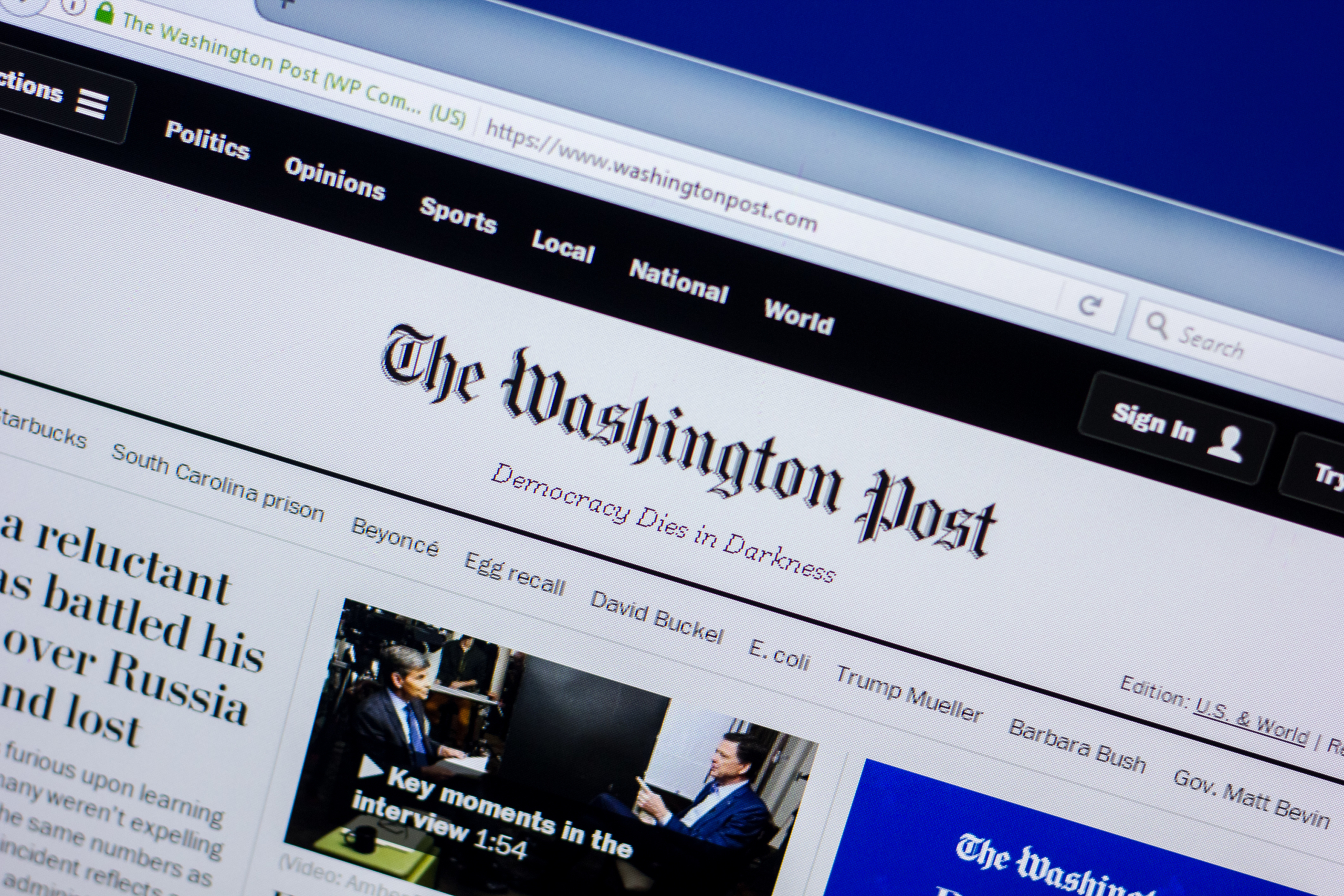Sign up for The Media Today, CJR’s daily newsletter.
We are living in a time of unprecedented corporate insincerity. It rises in tandem with the sincerity of the protesters in the street.
The name of the game for big companies and chief executives, in times like these, is to give the appearance of being on the side of the public while avoiding doing anything of substance that might negatively affect the bottom line. We are all watching in real time as the people who have benefited the most from the social and economic structures that are now being criticized figure out the cheapest possible way to garner the minimal amount of public good will to avoid being burned down.
Which brings us to Jeff Bezos, the owner of the Washington Post.
At the time of this writing, Bezos’ net worth is about $153 billion. It can fluctuate by billions of dollars per day with the movements of Amazon’s stock price. The fact that the loss or gain of several billion dollars in a day is completely immaterial to Bezos’ life is a very good illustration of the concept of diminishing marginal utility, which essentially means that the more money you have, the less each extra dollar means to you. By the time you reach Bezos’ level of wealth, even what amounts to a huge fortune is meaningless to you in a practical sense. Understanding this is the key to understanding the moral imperative that rests on the shoulders of billionaires: If they can do incredibly good things for the world without even missing the money, they obviously should. To fail to do so would be not just lazy, but wrong.
THE MEDIA TODAY: Maria Ressa’s conviction, and the Philippines’ dire information climate
To bring this conversation down to earth, consider the small matter of all of the Post employees who work for Bezos. They are, in a very real way, both contributors to his vast net worth, and people to whom he is directly responsible as an employer. What can Bezos do within his own company–for the people most directly under his control, who do the work that adds up to his billions–to prove that he actually cares about the ongoing national demand for justice and equity?
If your answer was “donate $10 million to good causes” you probably work for Amazon PR. A much more meaningful action, and one completely in his power, would be to ensure pay equity within his own company.
Luckily, the Washington Post Guild went to the trouble of conducting a full study on pay equity last year. They found that, in 2019 (six years into Bezos’ ownership of the paper), women in the newsroom were paid less than men; employees of color were paid less than white men, “even when controlling for age and job description”; and men earned a higher portion of merit raises than women “despite accounting for a smaller proportion of the newsroom.” On the commercial side of the businesses, the study found that white employees were on average paid five percent more than employees of color. Newsroom sources say that merit raises given in the past year may have mitigated the pay gap somewhat, but the fundamental disparities remain.
What would it take to achieve full pay equity at the Post? Surprisingly little. To raise the pay of all the journalists of color up to the average pay of white journalists would cost just under $2 million per year. To raise the pay of all of the women in the newsroom up to the average pay of men would cost about $9 million per year. The pay gap between white and non-white employees on the commercial side could be wiped out for less than $200,000 per year. And in reality, these figures would be significantly lower, because the study found that the real pay gaps exist only among employees under the age of 40.
In other words, for less than the obligatory charity donation and accompanying press release, Jeff Bezos could have achieved complete pay equity at the Post. Doing so, of course, would have required working productively together with the union, something that Bezos has never shown any interest in doing. But it would have been a quick and easy way to achieve equity in practice, rather than gesturing vaguely at an affinity for equity, as long as it doesn’t cost too much.
Of course, the Post is only a tiny piece of Jeff Bezos’s portfolio. Most of his wealth comes from Amazon, which employs more than 500,000 people in America. The company’s working conditions have been the subject of serious employee complaints for years. Warehouse workers across the country have walked out and demonstrated for better wages and workplace safety. The same Amazon PR executives who crafted the press-friendly little donation to “organizations supporting justice and equity” also strategized over how to smear a warehouse worker who was organizing coworkers. Actions speak louder than words.
The Post’s union is responsible for what we know about the pay gap at the company. So if Bezos is really interested in justice and equity for his own employees, the most meaningful thing he could do would be stop blocking Amazon workers from unionizing. That would give them the power to negotiate for what is just, rather than leaving the decision in the hands of executives. A union would raise wages for hundreds of thousands of people.
It would do far more than any charity donation ever could. It would cost Jeff Bezos some money—money he would never, ever miss. But he won’t do it. That’s all you need to know.
ICYMI: Why we capitalize ‘Black’ (and not ‘white’)
Has America ever needed a media defender more than now? Help us by joining CJR today.



